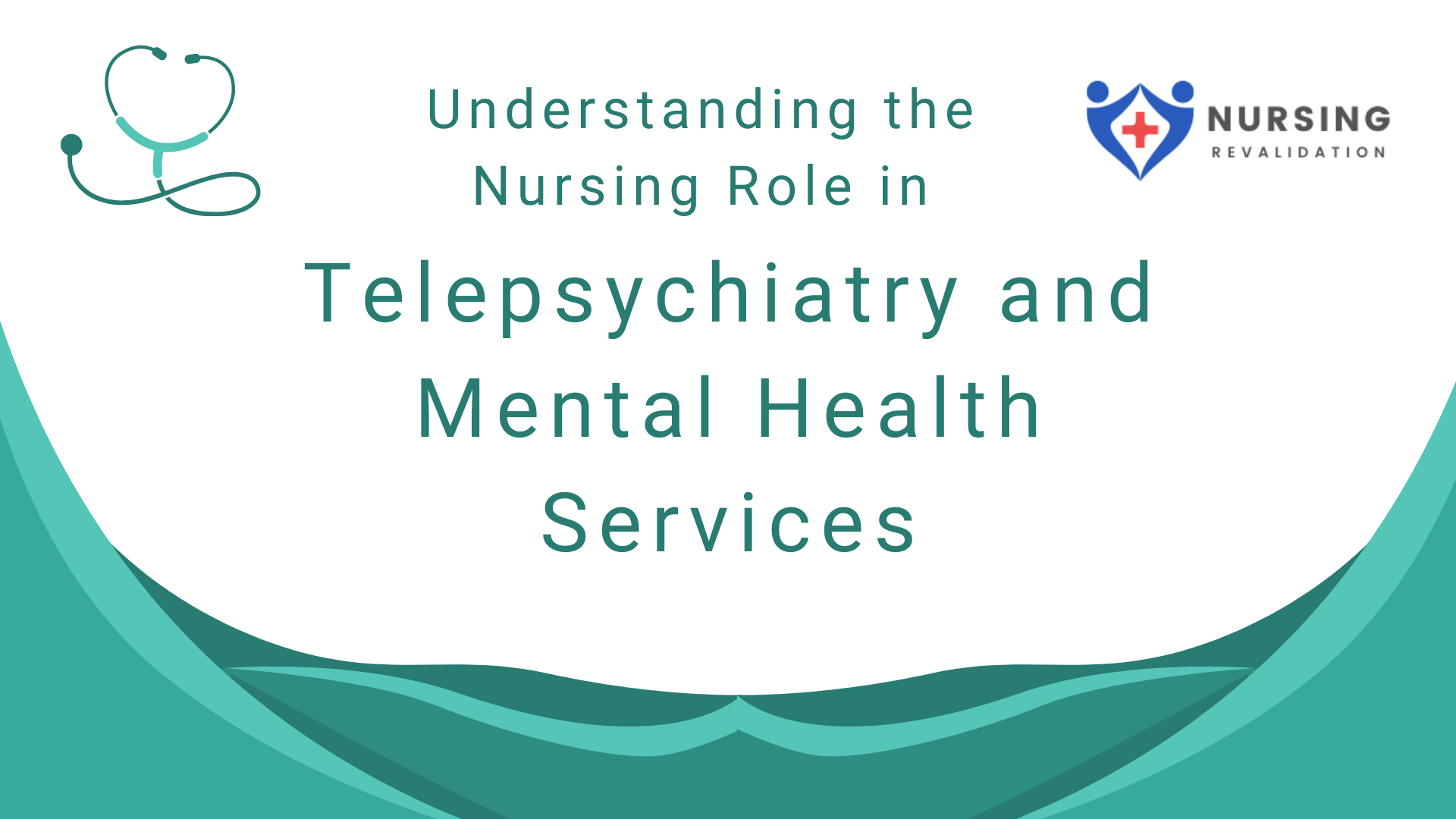In recent years, telepsychiatry has emerged as a vital component of mental health services, offering remote access to psychiatric care via telecommunications technology. Amidst this evolution, the nursing role in telepsychiatry has gained increasing importance. This article aims to provide a comprehensive understanding of the nursing role in telepsychiatry and mental health services, exploring its significance, responsibilities, challenges, and opportunities.
The Significance of Telepsychiatry in Mental Health Services
Telepsychiatry refers to the delivery of psychiatric assessment, therapy, medication management, and consultation services through video conferencing and other telecommunication technologies. Its significance lies in overcoming barriers to mental health care access, such as geographical distance, mobility issues, and stigma. By leveraging telepsychiatry, individuals can receive timely and convenient mental health services, leading to improved outcomes and enhanced patient satisfaction.
Table: Overview of Nursing Responsibilities in Telepsychiatry
| Nursing Responsibilities | Description |
|---|---|
| Clinical Assessment | Conduct comprehensive psychiatric assessments, establish rapport with patients, and gather data. |
| Medication Management | Oversee medication adherence, monitor side effects, and collaborate with providers for adjustments. |
| Therapeutic Interventions | Deliver evidence-based therapies such as CBT, DBT, and motivational interviewing via telehealth. |
| Crisis Intervention | Provide immediate support, assess risk, and coordinate interventions during mental health crises. |
| Coordination of Care | Serve as liaisons between patients, providers, and community resources, ensuring continuity of care. |
The Role of Nurses in Telepsychiatry
Nurses play a crucial role in the delivery of telepsychiatry services, acting as integral members of interdisciplinary mental health teams. Their responsibilities encompass a wide range of clinical and non-clinical tasks, including:
- Clinical Assessment: Nurses conduct comprehensive psychiatric assessments, gathering information on patients’ mental health history, symptoms, and treatment preferences. Through skilled communication and active listening, they establish rapport and trust with patients, facilitating accurate diagnosis and treatment planning.
- Medication Management: In collaboration with psychiatrists and other healthcare providers, nurses oversee medication management for patients receiving telepsychiatric care. They monitor medication adherence, side effects, and therapeutic response, adjusting treatment regimens as necessary to optimize outcomes and ensure patient safety.
- Therapeutic Interventions: Nurses deliver evidence-based therapeutic interventions via telepsychiatry platforms, such as cognitive-behavioral therapy (CBT), dialectical behavior therapy (DBT), and motivational interviewing. They provide psychoeducation, teach coping skills, and support patients in developing strategies to manage their mental health challenges effectively.
- Crisis Intervention: In emergencies or crisis situations, nurses play a pivotal role in providing immediate support and intervention. They assess risk, de-escalate volatile situations, and coordinate appropriate interventions, such as contacting emergency services or arranging for psychiatric hospitalization if needed.
- Coordination of Care: Nurses serve as liaisons between patients, healthcare providers, and community resources, coordinating care transitions, referrals, and follow-up appointments. They collaborate with social workers, case managers, and other professionals to ensure continuity of care and holistic support for patients.
Challenges and Opportunities for Nurses in Telepsychiatry
While telepsychiatry offers numerous benefits, it also presents unique challenges for nurses, including:
- Technological Barriers: Nurses must navigate unfamiliar telecommunication platforms and troubleshoot technical issues that may arise during virtual sessions, requiring adaptability and proficiency in using digital tools.
- Communication Limitations: Virtual interactions lack the nonverbal cues and physical proximity of face-to-face encounters, posing challenges for therapeutic communication and relationship-building. Nurses must rely on verbal cues and active listening skills to engage effectively with patients.
- Legal and Regulatory Considerations: Nurses practicing in telepsychiatry must adhere to state licensure requirements, professional standards of practice, and legal regulations governing telehealth services. They must stay abreast of evolving policies and guidelines to ensure compliance and mitigate legal risks.
Despite these challenges, telepsychiatry creates new opportunities for nurses to expand their scope of practice, reach underserved populations, and innovate in the delivery of mental health care. By embracing telepsychiatry, nurses can enhance access to care, improve patient outcomes, and contribute to the advancement of mental health services.
The Future of Nursing in Telepsychiatry
As telepsychiatry continues to evolve, the nursing role will undoubtedly grow in prominence and complexity. Nurses will increasingly leverage technology-enabled solutions, such as mobile apps, remote monitoring devices, and artificial intelligence, to deliver personalized, patient-centered care. Moreover, interdisciplinary collaboration and team-based care models will become standard practice, with nurses serving as key stakeholders in the integration of telepsychiatry into mainstream healthcare delivery.
Conclusion
In conclusion, understanding the nursing role in telepsychiatry is essential for optimizing mental health services in the digital age. Nurses play a multifaceted role in telepsychiatric care, encompassing clinical assessment, medication management, therapeutic interventions, crisis intervention, and coordination of care. While telepsychiatry presents challenges, it also offers unprecedented opportunities for nurses to innovate, collaborate, and improve access to quality mental health care. By embracing telepsychiatry, nurses can fulfill their professional mandate to promote health, prevent illness, and alleviate suffering in individuals and communities worldwide.

